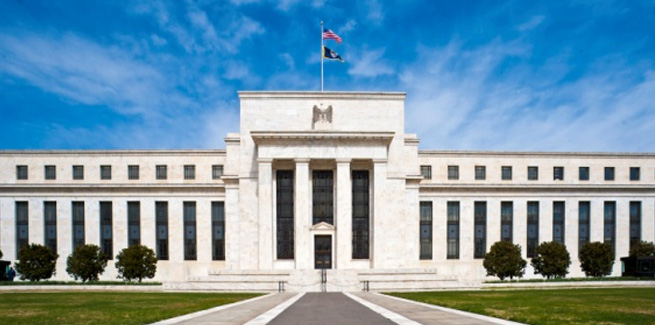The Federal Open Market Committee (FOMC) at the Federal Reserve, the US central bank, has decided to raise the federal funds rate by 75 bps, to a range of 1.5 to 1.75 per cent.
The rise to the country’s rate is its largest since 1994 and will push up the cost of borrowing for home owners, businesses and other borrowers, as the Fed pushed for the economy to slow down.
The increase has contributed to an overall rise in rates of 1.5 per cent so far in 2022, but the Fed has signalled that there are more upticks to come.
A statement from the central bank explained that while economic activity has picked up after edging down in the March and unemployment has remained low, inflation is soaring, as the pandemic, higher energy prices and supply chain issues have led to price pressures.
Last month, annual inflation in the US hit 8.6 per cent, reaching far above Australia’s current rate of 5.1 per cent.
The Fed is aiming to return its nation’s inflation back down to 2 per cent.
Federal Reserve chair Jerome Powell acknowledged that the increase was an “unusually large one”, but its size had been warranted as the committee grappled with the ongoing rises in inflation.
“We at the Fed understand the hardship high inflation is causing. We are strongly committed to bringing inflation back down and we are moving expeditiously to do so,” Mr Powell told journalists on Wednesday (15 June).
“…It is essential that we bring inflation down if we are to have a sustained period of strong labour market conditions that benefit all.”
He has also flagged that in coming months, the Fed will look for “compelling evidence that inflation is moving down” as it considers its next steps.
“We anticipate that ongoing rate increases will be appropriate; the pace of those changes will continue to depend on the incoming data and the evolving outlook for the economy,” Mr Powell said.
“Clearly, today’s 75 basis point increase is an unusually large one, and I do not expect moves of this size to be common. From the perspective of today, either a 50 or 75-bp increase seems most likely at our next meeting.
“We will however, make our decisions meeting by meeting and we will communicate our thinking as clearly as we can.”
The Fed’s statement of economic projections has flagged that the “appropriate level” for the federal funds rate will be 3.4 per cent by the end of the year.
Further climbs are expected in 2023, up to 3.8 per cent by the end of the year, before a decline down to 3.4 per cent in 2024.
Mr Powell commented the Fed will need to be nimble and adapt to the inflation outlook as it evolves, as “further surprises could be in store”.
“We are highly attentive to inflation risks and determined to take the measures necessary to restore price stability,” he said.
“The American economy is very strong and well positioned to handle tighter monetary policy.”
Back home, Aussie borrowers have been left reeling by the Reserve Bank of Australia’s (RBA) recent decision to also roll out a larger-than-expected interest rate rise in June, as it strives to combat surging inflation.
Following the 50-bp hike in June and a 25-bp increase in May, most big four economists are now predicting that the RBA will repeat its 50-bp increase in either July or August.
NAB in particular has tipped that it will duplicate the increase twice more, over July and August.
But RBA governor Philip Lowe has warned that inflation will keep skyrocketing in Australia, now forecasting that it will reach 7 per cent by the end of the year.
He has also flagged that it would be reasonable for the cash rate to reach 2.5 per cent “at some point”.
[Related: Australians must prepare as inflation is ‘too high’, says Lowe]

